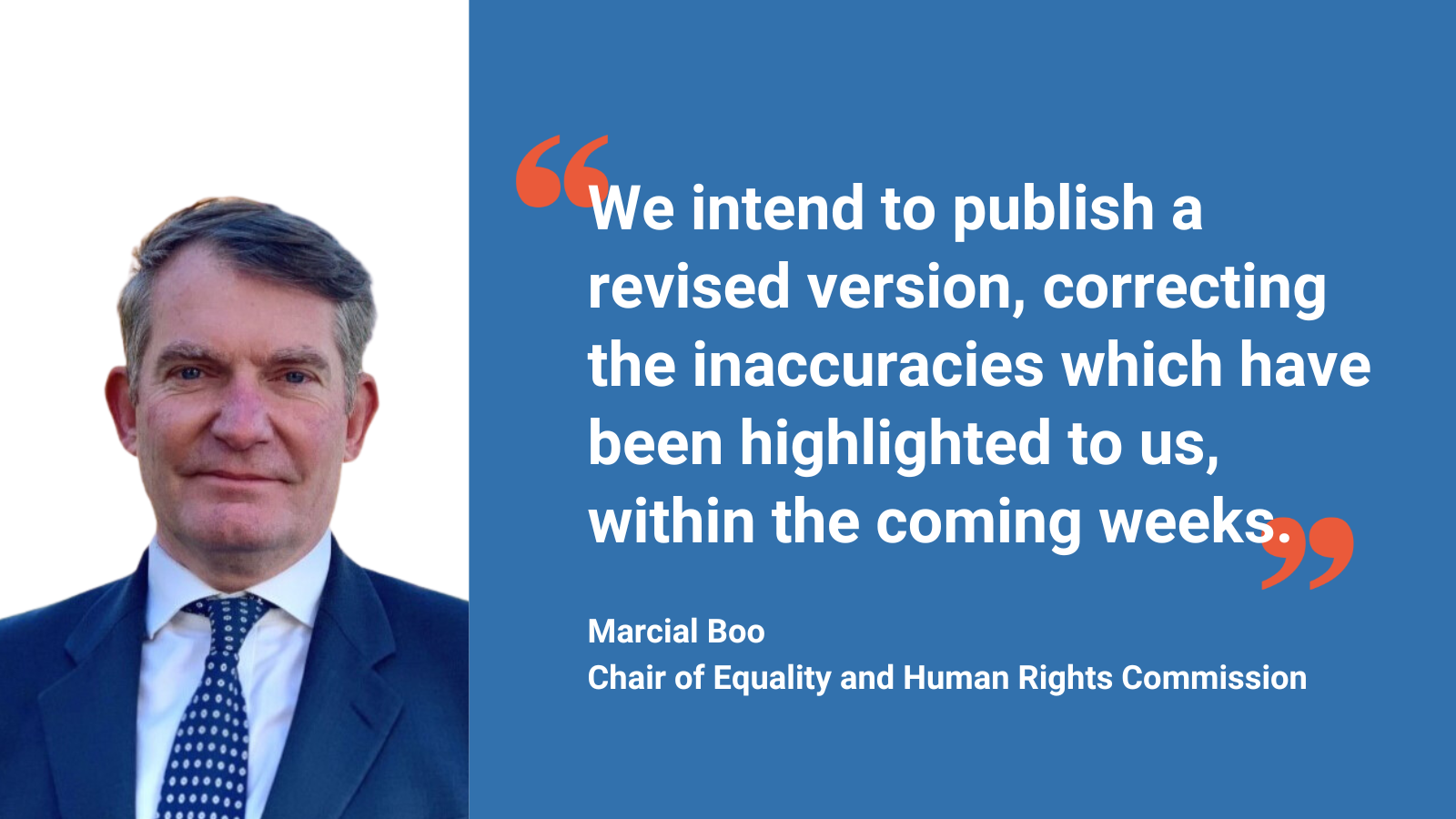EHRC to correct inaccurate schools guidance

The Equality and Human Rights Commission has written to us to confirm that it is undertaking a rapid review of its 2014 technical guidance for schools and intends to publish a revised version within the coming weeks, correcting the inaccuracies that have been highlighted:
“We recognise that since that time, several areas of policy and law, including in particular considerations around sex and gender such as those you raise, have evolved.”
Recognising that the previous EHRC technical guidance was wrong is an important step in enabling the Department for Education to develop sound guidance.
We had written to the EHRC in August to draw its attention to our review of the UK’s legal framework on sex and gender in education. We flagged the areas we thought the EHRC guidance had got wrong.
We argued that a school refusing to refer to a boy as a girl, or a girl as a boy, is not discriminating against a “trans child”. In fact it is protecting that child, because biological sex is a crucial factor in safeguarding. Why? Because schools (and every staff member in them) have a duty of care towards all their pupils, and it is not possible to fulfil this duty of care while pretending that a child is the opposite sex and misleading others with a duty of care about this. Nothing in the Equality Act takes precedence over schools’ statutory duties.
It is imperative that schools understand that if a child has the protected characteristic of gender reassignment their sex has not changed. We gave examples of situations in which a staff member will not be able to interpret the situation or respond to it safely and responsibly within their duty of care if they have been misled about the actual sex of the child.
We argued that if a child is not included within the ordinary standards of duty of care and safeguarding which depend on having accurate information, and sharing it, that will be direct discrimination against them because they have or are perceived to have the protected characteristic of gender reassignment.
It will also be a failure in schools’ duty of care and safeguarding for other children to lie about a child’s sex.
The EHRC has previously argued that a schools must consider whether to allow a child to use opposite-sex facilities on a case-by-case basis. We do not think this is safe, fair or practical: schools need clear rules for the benefit of all – and it could be argued that it is a detriment to let a child use opposite-sex facilities, for the reasons stated above.
It is a critical role for the EHRC to make clear that having the protected characteristic of gender reassignment does not mean that a child must be treated as the opposite sex, but only that they must have the same access to education as other children.
We know that it will be difficult for the EHRC to explicitly recognise this error in the guidance (which it was strongly defending as recently as 2021), but it is necessary in order to create a safe environment for children in schools. The EHRC’s reply recognises these points:
“You raise important and complex areas of equality law. For example, as you suggest, it may not be directly discriminatory for a school not to refer to a child by their preferred gender (where it differs from their legal sex). However, schools must carefully consider how they justify and consistently apply their policies on this matter to avoid any risk of indirect discrimination.”
The EHRC confirmed that it will not be publishing it own guidance for schools specifically on issues of sex and gender in addition to the guidance being prepared by the Department for Education, as duplication of this work risks creating confusion for schools.
It recognises that schools are calling for clear information on these matters and says it has been urging the Department for Education to expedite its new guidance – as has Sex Matters.
